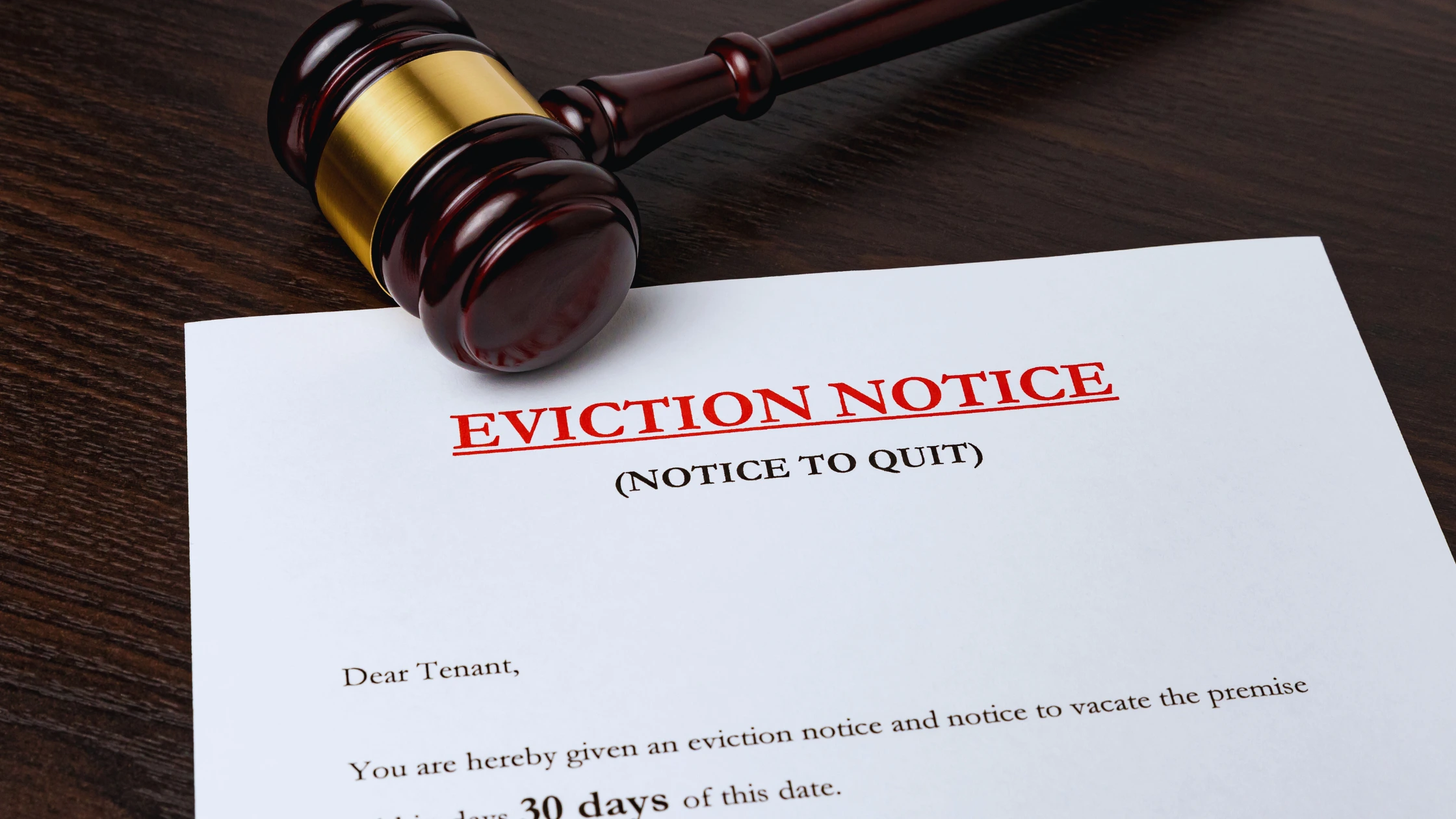Are you facing an eviction in Kansas? Don’t worry, we’ve got you covered.
In this article, we’ll guide you through the complex process of eviction in Kansas. We’ll explain each step, from receiving the initial eviction notice to the court hearing and execution of the writ.
We’ll also provide valuable information on serving eviction notices, tenant responses, and the rules surrounding the storage of your property.
Whether you’re a tenant or a landlord, this comprehensive guide will help you navigate the Kansas eviction process effectively.
Eviction Notice and Lawsuit
If you’re a landlord in Kansas, you must serve a three- to thirty-day eviction notice to initiate the eviction process. This notice informs the tenant that they must vacate the rental property within the specified timeframe. It’s crucial to follow the proper procedures and timelines outlined in the Kansas eviction laws.
Once the eviction notice is served, the landlord can proceed with filing an eviction lawsuit with the court. In Kansas, if you’re wondering, how much do eviction lawyers cost? The cost of hiring an eviction lawyer may vary depending on the complexity of the case and the attorney’s fees. It’s advisable to consult with different lawyers to get an estimate of the cost before proceeding.
Understanding the eviction notice and lawsuit process is essential for landlords in Kansas to ensure a smooth and legal eviction process.
Serving Eviction Notice and Summons
To initiate the eviction process in Kansas, you must serve the eviction notice and summons to the tenant. The eviction notice Kansas can be served personally, by leaving a copy at the rental unit, posting a copy in a conspicuous place on the premises, or mailing a copy by registered/certified mail with a return receipt.
Once the court receives the eviction lawsuit, they’ll issue an Eviction Summons, which must be served to the tenant. The Summons requires the tenant to appear in court within three to 14 days. It should be served by a person authorized to do so or by the sheriff.
Either party can request a continuance, which may delay the court hearing. If the tenant fails to file an answer or appear in court, a default judgment may be issued.
Tenant’s Response and Counterclaim
When responding to an eviction lawsuit, tenants must file a written answer or prepare a defense. The written answer should include the dispute and any affirmative defenses. It’s important to provide your current contact information in the answer.
This is your opportunity to present your side of the story and explain why you shouldn’t be evicted. Additionally, tenants have the option to file a counterclaim against the landlord. This means you can assert your own legal claims against the landlord, such as for breach of the lease agreement or failure to maintain the property.
It’s crucial to respond to the eviction lawsuit and present your case in order to avoid a default judgment.
Execution of Writ and Storage Rules
After the court issues the writ, it’s your responsibility as the process server to execute it within 14 days. Once you receive the writ, you must act promptly to ensure its proper execution.
There’s no specific time frame given to tenants for moving out, but the writ may include a specified time frame when served to the tenant. If the tenant fails to comply with the writ, the sheriff or an authorized person will return within 14 days to forcibly remove the tenant.
As the landlord, you’re required to remove any personal property left behind by the evicted tenant. However, you must store the property for 30 days at the tenant’s expense. After the 30-day period, you can sell or dispose of the property.
Make sure to publish your intent to sell or dispose of the property in a local publication at least 15 days before the sale and mail a copy of the publication to the tenant within seven days after publication.
Squatters and Eviction Costs
If you encounter squatters in your Kansas rental property, you can treat them as any other tenant and initiate the eviction process. Squatters are individuals who occupy vacant or abandoned properties without permission or paying rent.
In Kansas, squatters must have lived in the property for 15 consecutive years to claim the right of possession. For squatters to file for adverse possession and obtain legal ownership of the property, their possession must be hostile/adverse, actual, open and notorious, exclusive, and continuous.
The estimated cost of the eviction process in Kansas can vary widely, depending on factors such as legal fees, lost rent, time, and stress. The length of eviction cases can also vary based on complexity, court caseload, and the tenant’s contest or appeal.
It’s important to consider these factors when dealing with squatters and the potential costs associated with eviction.
Conclusion
In conclusion, understanding the Kansas eviction process is crucial for both tenants and landlords.
By familiarizing yourself with the steps involved, such as serving eviction notices, responding to summonses, and executing writs, you can navigate through the process successfully and protect your rights.
Whether you’re facing eviction or seeking to regain possession of your property, this comprehensive guide will provide you with the necessary information to navigate the Kansas eviction process effectively.




